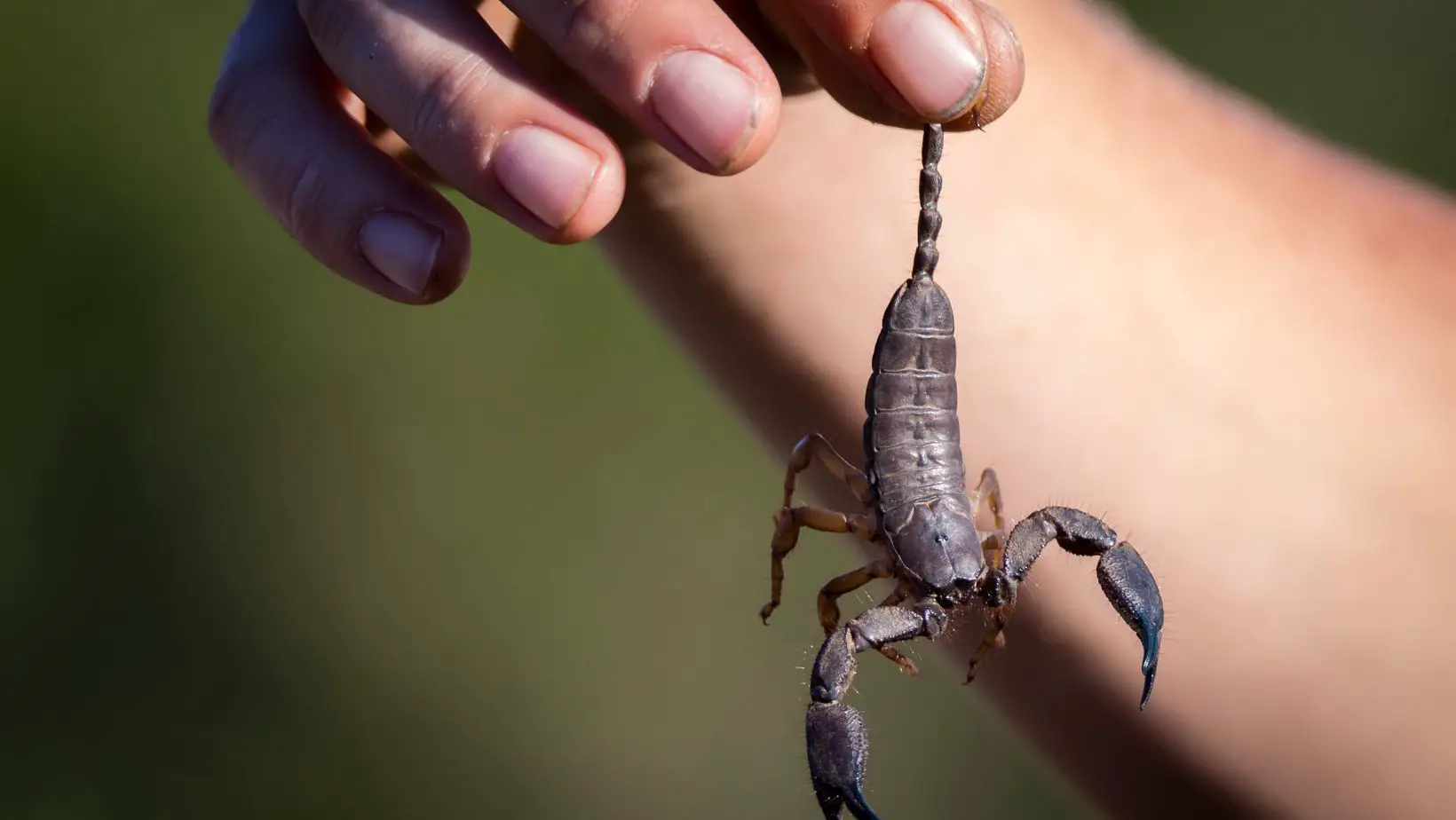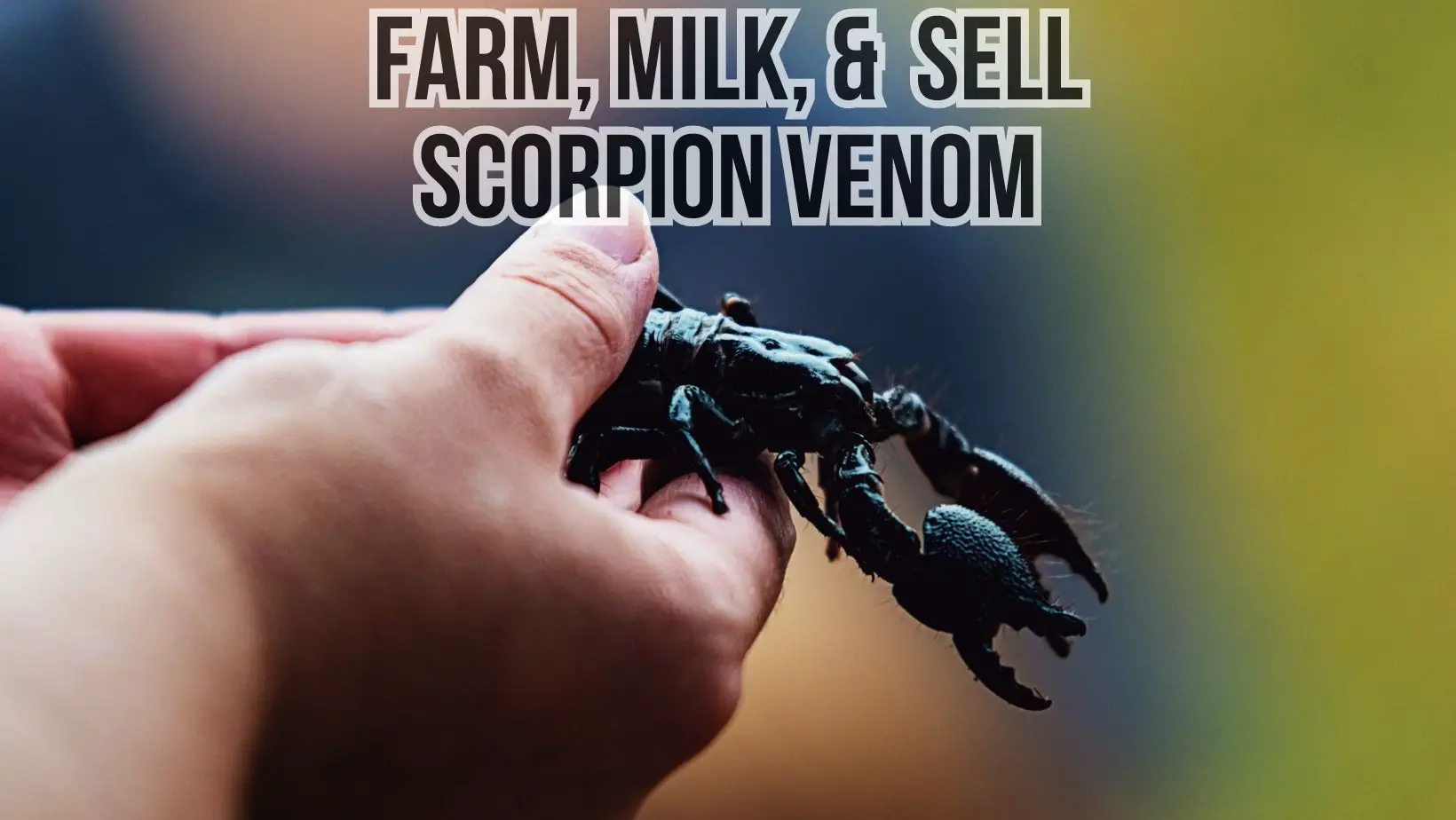- Research local regulations: Begin by researching and understanding the specific regulations and permits required for owning and operating a scorpion farm in your location. Contact local authorities, wildlife departments, or agricultural agencies to obtain information on the legal requirements.
- Identify suitable scorpion species: Choose scorpion species known for producing venom that has value in the market. Consider factors such as venom potency, demand, and feasibility of breeding and maintaining the species in your farm’s environment.
- Secure suitable facilities: Establish a secure facility that provides appropriate conditions for scorpion breeding and housing. Consider factors such as temperature, humidity, lighting, ventilation, and safety measures to ensure the well-being of the scorpions.
- Obtain necessary permits and licenses: Apply for the required permits and licenses to legally operate a scorpion farm. This may involve obtaining permits related to wildlife, biohazard handling, agriculture, or other relevant permits specific to your location.
- Establish breeding colonies: Acquire scorpions for your farm through legal means, such as purchasing from reputable breeders or obtaining them through proper channels. Create suitable enclosures or habitats that mimic their natural environment, ensuring adequate space, hiding spots, and appropriate conditions for breeding and reproduction.
- Develop feeding and care protocols: Establish proper feeding and care protocols for the scorpions to ensure their well-being and optimal venom production. Consult with experts or entomologists to understand the dietary requirements and environmental conditions that promote healthy scorpion populations.
- Venom extraction techniques: Learn safe and ethical venom extraction techniques. This process should be conducted by trained professionals with expertise in minimizing harm to the scorpions and themselves. Ensure compliance with biohazard safety protocols and follow ethical practices.
- Establish partnerships: Build relationships with research institutions, pharmaceutical companies, or venom buyers who may be interested in purchasing your extracted venom. Conduct due diligence to ensure the credibility and legitimacy of potential partners or buyers.
- Compliance with regulations: Continuously ensure compliance with all relevant regulations, including proper record-keeping, reporting, and adherence to biosecurity measures. Stay updated with any changes in regulations and adjust your operations accordingly.
- Marketing and distribution: Develop a marketing strategy to promote your scorpion farm and the quality of your extracted venom. This may involve creating a professional website, attending industry conferences, participating in trade shows, and networking with potential customers or partners.
- Seek professional guidance: Consider consulting with experts in scorpion farming, venom extraction, and legal professionals familiar with wildlife regulations to ensure compliance and success in your venture.
Starting a scorpion farm for venom extraction requires thorough planning, compliance with regulations, and a commitment to ethical practices. It’s essential to conduct proper research, seek expert advice, and adhere to legal and ethical considerations throughout the process.
How To Harvest And Sell Scorpion Venom?
Harvesting and selling scorpion venom involves careful procedures and adherence to legal and ethical considerations. Here is a general guide on how to harvest and sell scorpion venom:
- Obtain necessary permits and licenses: Before harvesting and selling scorpion venom, ensure that you have obtained the required permits and licenses. Contact local authorities, wildlife departments, or agricultural agencies to understand the specific regulations and legal requirements for venom harvesting and sales in your area.
- Establish a scorpion farm: Set up a scorpion farm or breeding facility where you can safely house and breed scorpions. Create suitable enclosures with appropriate environmental conditions to promote healthy scorpion populations.
- Identify venomous scorpion species: Focus on scorpion species known for their venom potency and demand in the market. It’s important to understand the specific species and their venom characteristics before proceeding.
- Venom extraction techniques: Learn safe and ethical venom extraction techniques. This process should be conducted by trained professionals with expertise in handling scorpions and minimizing harm to both the scorpions and themselves. Techniques may involve electrical or mechanical stimulation to extract venom without causing harm to the scorpions.
- Proper handling and storage: Ensure that venom samples are properly handled and stored to maintain their potency and quality. Follow biohazard safety protocols, use sterile equipment, and store venom samples in suitable containers under appropriate conditions.
- Compliance with regulations: Adhere to all relevant regulations regarding venom harvesting, storage, and transportation. Maintain proper records and documentation, and follow any reporting requirements specified by local authorities or regulatory agencies.
- Partner with research institutions or pharmaceutical companies: Develop partnerships with research institutions or pharmaceutical companies interested in purchasing scorpion venom. Conduct due diligence to ensure the credibility and legitimacy of potential partners. Collaborate with them to understand their specific requirements and work out agreements for venom sales.
- Marketing and distribution: Develop a marketing strategy to promote your scorpion venom. This may involve creating a professional website, attending industry conferences or trade shows, and networking with potential buyers in the pharmaceutical or research sectors.
- Ethical considerations: Conduct all activities related to scorpion venom harvesting and sales with ethical considerations in mind. Avoid contributing to illegal or unethical practices and ensure that your operations align with conservation efforts and the responsible use of wildlife resources.
- Seek professional guidance: Consider seeking guidance from experts in the field of scorpion venom extraction and trading, as well as legal professionals familiar with wildlife regulations and biohazard handling, to ensure compliance and success in your business.
Scorpion Milking Guide
How Much Money Can You Make From Scorpion Venom?
Earnings potential: Scorpion venom is a valuable commodity due to its potential applications in medical research, pharmaceuticals, and antivenom production. The exact amount of money you can make from scorpion venom depends on factors like the venom yield per scorpion, the potency of the venom, and the market price for venom.
Can We Sell Scorpion Venom?
Selling scorpion venom: Yes, it is possible to sell scorpion venom. However, it is important to comply with legal regulations and obtain the necessary permits and licenses to engage in the trade of venom. Regulations may vary by country and region, so it’s crucial to research and understand the legal requirements specific to your location.
Is Scorpion Business Profitable?
Profitability of the scorpion business: The profitability of a scorpion venom business can be influenced by various factors, including the cost of establishing and maintaining a scorpion farm, expenses related to housing and feeding the scorpions, labor costs, marketing efforts, and the market demand for scorpion venom.

How Much Is 1 Ml Of Scorpion Venom?
Pricing of scorpion venom: The price of scorpion venom can vary based on factors such as the species of scorpion, the potency of the venom, the volume being sold, and the specific market demand. Prices are usually quoted per milliliter (ml) of venom. The actual market price can only be determined through negotiations with potential buyers or by researching market trends.
Who Buy Scorpion Venom?
Buyers of scorpion venom: Potential buyers of scorpion venom include research institutions, pharmaceutical companies, venom collectors, antivenom manufacturers, and individuals involved in medical research or specialized venom-related industries. Establishing contacts within these industries can help you identify potential buyers for your venom.
What Is The Price Of 1 Litre Of Scorpion Poison?
Scorpion venom is commonly referred to as venom rather than poison. The price of 1 liter of scorpion venom can vary significantly depending on factors such as the species of scorpion, the potency of the venom, the market demand, and the negotiations with buyers. It is essential to conduct thorough market research and negotiate with potential buyers to determine the specific price for your venom. About 10 million USD.
Summary
Remember to always prioritize safety, legal compliance, and ethical practices when harvesting and selling scorpion venom. The specific requirements and regulations may vary depending on your location, so it is important to research and adhere to the guidelines set by local authorities and regulatory agencies.
The profitability of the scorpion venom business can vary depending on several factors, such as the species of scorpion, the market demand for venom, the quality of the venom, and the specific agreements and contracts you have in place. Here are some general considerations:
